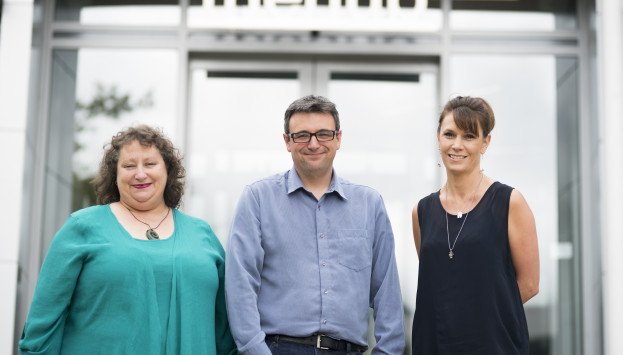Otago Polytechnic has launched a Doctor of Professional Practice – a programme for people looking to achieve a high-level qualification while also making a significant contribution to their organisation, hapū, iwi, community or profession.
The inaugural doctorate programme, which began on January 4, features five highly skilled learners, all of whom gained entry after a rigorous, competitive selection process.
“The learners are interviewed,” Jo Kirkwood, programme coordinator, explains. “We need to be sure the people who are accepted are a good fit.
The Doctor of Professional Practice (DPP) is an innovative initiative run by Capable NZ. It allows learners to design new professional and personal learning goals, and then complete a substantial piece of research (including a 50,000-word thesis) over at least three years.
A key difference between the DPP and a traditional doctorate is that learners do not have to give up work in order to study. Instead, the programme is integrated with leaners’ work, enabling them to focus on a topic that enhances their work practices if they wish.
Significantly, those enrolled in the DPP are looking to help others.
For example, Bay of Plenty businesswoman and teacher Mawera Karetai’s studies will include an investigation into the dynamics of social welfare support systems.
“Someone on a benefit might have to go through a process such as a benefit review panel. If that person has a low level of literacy they might not understand what’s happening,” Mawera says.
Suzie Bartlett, meanwhile, will research the resilience of undergraduate nursing students working in a mental health clinical environment.
A senior lecturer and course coordinator in nursing at Otago Polytechnic, Suzie has a close-up view of student pressures.
“Around 20% of the population suffers from a form of mental illness – and that includes our student cohort.
“When students are immersed in an acute mental health environment, they may start suffering from issues themselves.”
Another Otago Polytechnic academic, Adrian Woodhouse, is examining educational practices – specifically within the Bachelor of Culinary Arts (BCA) programme.
The academic leader of the BCA, Adrian advocates a more “humanist” approach to teaching, focusing on students’ motivations and goals.
“There are these widely held views that a good chef wears a white jacket and works in a stressful environment. That is a social construct. It’s not reality.”
Read more about our Doctor of Professional Practice
Read more about Capable NZ
Published on 10 Jan 2018
Orderdate: 10 Jan 2018
Expiry: 18 Jun 2018






